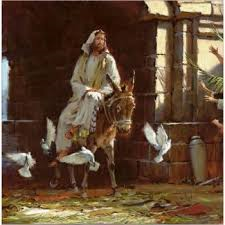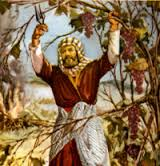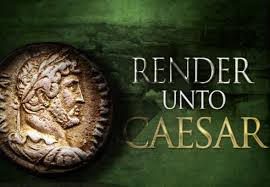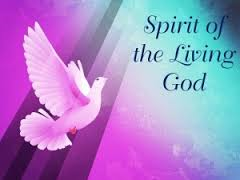Hardened Hearted Divorce and The Parable of Me, Myself and I.
 I swear to God, no, I mean I am inspired by God when I read His Word, it freaks me out a little bit when He sends me what I (and others) call Godsends. Not really freak me out but connects in a very special way. In the New Testament I basically read two pages a day from my Bible or in this case two chapters in Matthew. In each segment I probably (and may very well year-after-year) could write ten stories about my life and my reaction to the written Word.
I swear to God, no, I mean I am inspired by God when I read His Word, it freaks me out a little bit when He sends me what I (and others) call Godsends. Not really freak me out but connects in a very special way. In the New Testament I basically read two pages a day from my Bible or in this case two chapters in Matthew. In each segment I probably (and may very well year-after-year) could write ten stories about my life and my reaction to the written Word.
I have been divorced for ten years and the impact of that divorce, spiritually, mentally, emotionally and even physically has been on my mind off-and-of, in passing and sometimes with staying power over those ten years. Never once did I think about it in terms of the hardening of my heart as written in the Word:
 “Because Moses, by reason of the hardness of your heart, permitted you to put away your wives; but it was not so from the beginning…”
“Because Moses, by reason of the hardness of your heart, permitted you to put away your wives; but it was not so from the beginning…”
By reason of the hardness of my heart is the reason that I divorced my wife of 25 years. It was a selfish, senseless and egotistical of me to do so. It was a childish thing to do so and quite frankly even at the age of 47 I was still thinking and reacting as a child and not the right type of child that gets you into heaven but the self-centered child that is all me, me,me. I felt abandoned and lacking trust I did not have the honesty or skills to work through that difficult time. I can entertain you with a whole bunch of rationalizations, justifications and denial but they are all a fabrication of the truth which is I did not thoroughly know, accept or love myself or God or any other human being. Sometimes it is hard to look in the mirror and see what is really there.
 Interesting that the first mention of the Ten Commandments in the New Testament in Matthew lists only five, incorrectly includes the Golden Rule as one, and leaves out five! I know the Bible can never be “incorrect” so it must be my interpretation or a function of time or place or both and a matter on application? Check out the notes below for full disclosure of my error.
Interesting that the first mention of the Ten Commandments in the New Testament in Matthew lists only five, incorrectly includes the Golden Rule as one, and leaves out five! I know the Bible can never be “incorrect” so it must be my interpretation or a function of time or place or both and a matter on application? Check out the notes below for full disclosure of my error.
The parable of the laborers in the vineyard hit home with me in a more impactful manner than ever before.
 “For the kingdom of heaven is like a householder who went out early in the morning to hire laborers for his vineyard… denarius a day… the third hour… go you also into the vineyard and I will give you whatever is just… the sixth and the ninth hour… the eleventh hour… evening had come.. pay them their wages, beginning from the last even to the first… each received a denarius… they thought they would receive more… these last have worked a single hour (twelve hour work days?)… Friend, I do thee no injustice; didst thou not agree with me for a denarius?… Take what is thine and go… Have I not a right to do what I choose?… Or art thou envious because I am generous?… Even so the last shall be first, and the first shall be last; for many are called, but few are chosen…”
“For the kingdom of heaven is like a householder who went out early in the morning to hire laborers for his vineyard… denarius a day… the third hour… go you also into the vineyard and I will give you whatever is just… the sixth and the ninth hour… the eleventh hour… evening had come.. pay them their wages, beginning from the last even to the first… each received a denarius… they thought they would receive more… these last have worked a single hour (twelve hour work days?)… Friend, I do thee no injustice; didst thou not agree with me for a denarius?… Take what is thine and go… Have I not a right to do what I choose?… Or art thou envious because I am generous?… Even so the last shall be first, and the first shall be last; for many are called, but few are chosen…”
Or art thou envious because I am generous?
Or am I jealous because others have more than me?
 Am I comparing my insides to their outsides? What about my outside to their insides? Aren’t our insides, out thoughts, fears, resentments, lies and selfish ego all basically the same but only different in the way they get us into trouble (sin)?
Am I comparing my insides to their outsides? What about my outside to their insides? Aren’t our insides, out thoughts, fears, resentments, lies and selfish ego all basically the same but only different in the way they get us into trouble (sin)?
And for some reason I ended reading that passage the way it started and concluded with “for the kingdom of heaven is like…”—this!
Why do we compare? Or judge? Or compare ourselves to perfection? Oh that not so silent at times inner critical voice. Or see the world, others, ourselves and even God in this all-or-nothing manner of thinking?
Silly little sinful human beings are we.
 My God is compassionate, accepting and loving of me!
My God is compassionate, accepting and loving of me!
I in turn am compassionate, accepting and loving of myself.
And through this awareness, this state of mind, this state of being, I am compassionate, accepting, and loving of every other human being and all of humanity in general terms.
 Except when I am not.
Except when I am not.
Like the day I decided to get divorced.
Or the moment I choose to compulsively binge eat or feed my sugar addiction.
At those times, I abandon myself, my God and the world.
Silly little sinful human being am I.

Day 20: Reading The Bible with a TROML Perspective; Hardened Hearted Divorce and The Parable of Me, Myself & I.
Read and inspired by the New Testament, The Gospel of Saint Matthew Chapters 19-20.
Bible Notes:
The Holy Gospel of Jesus Christ according to Saint Matthew
Saint Matthew, also known as Levi, was a Galilean by birth.
Tax Collector at Capharnaum
Christ called him to become a disciple, and later an Apostle
After the Holy Ghost came down on the Apostles on Pentecost, Matthew preached the Gospel in Judea.
He wrote his Gospel to prove to his readers that Christ was the Messiah foretold by God in the Old Testament
Matthew Chapter 19: Christ travels to Judea; The question of divorce; Continence preferred to marriage; Jesus blesses the children; The rich young man speaks to Jesus; The danger of riches; A hundredfold reward promised.
Jesus departed from Galilee and came to the district of Judea beyond the Jordan.
Is it lawful for a man to put away his wife for any cause? Pharisees testing Jesus.
“For this cause a man shall leave his father and mother and cleave to his wife, and the two shall become one flesh. Therefore now they are no longer two, but one flesh. What therefore God has joined together, let no man put asunder.”
Asunder—into separate parts; in or into pieces; apart or widely separated.
Why then did Moses command to give a written notice of dismissal and to put her away?
“Because Moses, by reason of the hardness of your heart, permitted you to put away your wives; but it was not so from the beginning. And I say to you, that whoever puts away his wife, except for immorality, and marries another, commits adultery; and he who marries a woman who has been put away commits adultery.”
If the case of a man with his wife is so, it is not expedient to marry.
“Not all can accept this teaching; but those to whom it has been given… Let him accept it who can.”
Eunuchs—a castrated man, especially one formerly employed by rulers in the Middle East and Asia as a harem guard or palace official.
That he may lay his hands on them…
“Let the little children be, and do not hinder then from coming to me, for of such is the kingdom of heaven.”
“Good Master, what good work shall I do to have eternal life?”
“One there is who is good, and he is God. But if thou wilt enter into life, keep the commandments.”
Which (commandments)?
Thou shalt not kill.
Thou shalt not commit adultery.
Thou shalt not steal.
Thou shalt not bear false witness.
Honor thy father and mother.
Thou shalt love thy neighbors as thyself (Golden Rule???)
Missing: You shall have no other gods before me.
Missing: You shall not make for yourself a graven image…
Missing: You shall not take the name of the Lord your God in vain…
Missing: You shall not bear false witness against your neighbor.
Missing: You shall not covet your neighbor’s wife…
Ten Commandments, also called Decalogue (Greek: deka logoi [“10 words”]), list of religious precepts that, according to various passages in Exodus and Deuteronomy, were divinely revealed to Moses on Mt. Sinai and were engraved on two tablets of stone. The Commandments are recorded virtually identically in Ex. 20: 2–17 and Deut. 5: 6–21. The rendering in Exodus (Revised Standard Version) appears as follows:
I am the Lord your God, who brought you out of the land of Egypt, out of the house of bondage.
- You shall have no other gods before me.
- You shall not make for yourself a graven image, or any likeness of anything that is in heaven above, or that is in the earth beneath, or that is in the water under the earth; you shall not bow down to them or serve them; for I the Lord your God am a jealous God, visiting the iniquity of the fathers upon the children to the third and the fourth generation of those who hate me, but showing steadfast love to thousands of those who love me and keep my commandments.
- You shall not take the name of the Lord your God in vain; for the Lord will not hold him guiltless who takes his name in vain.
- Remember the Sabbath day, to keep it holy. Six days you shall labor, and do all your work; but the seventh day is a Sabbath to the Lord your God; in it you shall not do any work, you, or your son, or your daughter, your manservant, or your maidservant, or your cattle, or the sojourner who is within your gates; for in six days the Lord made heaven and earth, the sea, and all that is in them, and rested the seventh day; therefore the Lord blessed the Sabbath day and hallowed it.
- Honor your father and your mother, that your days may be long in the land which the Lord your God gives you.
- You shall not kill.
- You shall not commit adultery.
- You shall not steal.
- You shall not bear false witness against your neighbor.
- You shall not covet your neighbor’s wife, or his manservant, or his maidservant, or his ox, or his ass, or anything that is your neighbor’s.
“If thou wilt be perfect, go, sell what thou hast, and give to the poor, and thou shalt have treasure in heaven; and come, follow me.”
“It is easier for a camel to pass through the eye of a needle, than for a rich man to enter the kingdom of heaven.”
Who then can be saved?
“With men this is impossible, but with God all things are possible.”
“Behold, we have left all and followed thee; what then shall we have?
“Amen, I say to you that you who have followed me, in the regeneration when the Son of Man shall sit on the throne of His glory… And everyone… for my name’s sake, shall receive a hundredfold, and shall possess life everlasting. But many who are first now will be last, and many who are last now will be first.”
Matthew Chapter 20: Parable of the laborers in the vineyard; The third prediction of the passion: The mother of James and John; Humility according to Christ’s example; The blind man at Jericho.
For the kingdom of heaven is like a householder who went out early in the morning to hire laborers for his vineyard… denarius a day… the third hour… go you also into the vineyard and I will give you whatever is just… the sixth and the ninth hour… the eleventh hour… evening had come.. pay them their wages, beginning from the last even to the first… each received a denarius… they thought they would receive more… these last have worked a single hour (twelve hour work days?)… Friend, I do thee no injustice; didst thou not agree with me for a denarius?… Take what is thine and go… Have I not a right to do what I choose?… Or art thou envious because I am generous?… Even so the last shall be first, and the first shall be last; for many are called, but few are chosen… For the kingdom of heaven is like
Gentiles—a person who is not Jewish, especially a Christian; (among Mormons) a person who is not a Mormon; a heathen or pagan.
”What does thou want?”
Command that these my two sons (James and John) may sit, one at thy right hand and one at thy left hand, in thy kingdom.
“You do not know what you are asking for. Can you drink of the cup of which I am about to drink?”
We can.
“Of my cup you shall indeed drink… that is not mine to give you, but it belongs to those for whom it has been prepared by my Father.”
It is also a placement next to God in Heaven, in the traditional place of honor, mentioned in the New Testament as the place of Christ at Mark 16:19, Luke 22:69, Matthew 22:44 and 26:64, Acts 2:34 and 7:55, 1 Peter 3:22 and elsewhere. These uses reflect use of the phrase in the Old Testament, for example in Psalms 63:8 and 110:1. In the Bible, to be at the right side “is to be identified as being in the special place of honor”. In Jesus’ The Sheep and the Goats, the sheep and goats are separated with the sheep on the right hand of God and the goats on the left hand.
We are not told anything about who might be at the left hand.
“Whoever wishes to be great among you shall be your servant and whoever wishes to be first among you shall be your slave; even as the Son of Man has not come to be served but to serve, and to give his life as a ransom for many.”
Lord, son of David, have mercy on us!
“What will you have me do for you?”
Lord, that our eyes be open.
And Jesus moved with compassion for them, touched their eyes; and at once they received their sight, and followed him.
 And so God chooses Moses to lead His people. The babe that was left in a basket on the river so that Pharao’s daughter would find him and raise him as one of her own. But Moses, a Hebrew, sees how the Egyptians abused his native man and killed an Egyptian in revenge. He flees for his safety north to the land of Madian, marries and has two sons. Then God calls him through the burning bush to return to Egypt, with the help of his brother Aaron, to convince Pharao to let the Israelites leave Egypt and God’s promise that they would be freed from bondage.
And so God chooses Moses to lead His people. The babe that was left in a basket on the river so that Pharao’s daughter would find him and raise him as one of her own. But Moses, a Hebrew, sees how the Egyptians abused his native man and killed an Egyptian in revenge. He flees for his safety north to the land of Madian, marries and has two sons. Then God calls him through the burning bush to return to Egypt, with the help of his brother Aaron, to convince Pharao to let the Israelites leave Egypt and God’s promise that they would be freed from bondage. And Pharao was hardened, and he did not hearken to them, as the Lord had commanded.
And Pharao was hardened, and he did not hearken to them, as the Lord had commanded. And Pharao called the wise men and the magicians: and they also by Egyptian enchantments and certain secrets did in like manner. Interesting that magic could match some of God’s physical abilities way back when.
And Pharao called the wise men and the magicians: and they also by Egyptian enchantments and certain secrets did in like manner. Interesting that magic could match some of God’s physical abilities way back when. “Rest was given. The frogs to remain only in rivers. We got short term relief and we renege on our promises to change. Oh, it is not that bad.
“Rest was given. The frogs to remain only in rivers. We got short term relief and we renege on our promises to change. Oh, it is not that bad. When the hail ceased, Pharao increased his sin. How many times do we do this? Get away with something so we do more of it. Especially with addictions or hurts, hang-ups and habits—they are progressive and the question is to what extent will they progress and how can we stop them? Death is certain, sometimes quicker than need be, sometimes slower than desired when we find that spiritual solution to life.
When the hail ceased, Pharao increased his sin. How many times do we do this? Get away with something so we do more of it. Especially with addictions or hurts, hang-ups and habits—they are progressive and the question is to what extent will they progress and how can we stop them? Death is certain, sometimes quicker than need be, sometimes slower than desired when we find that spiritual solution to life. Hence forward forever…
Hence forward forever… Parable of the vine-dressers: then he let it out to the vine-dressers and went abroad. Where did one travel abroad in Jesus’ day?
Parable of the vine-dressers: then he let it out to the vine-dressers and went abroad. Where did one travel abroad in Jesus’ day? “Render, therefore, to Caesar the things that are Caesar’s, and to God the things that are God.”
“Render, therefore, to Caesar the things that are Caesar’s, and to God the things that are God.” “He is not the God of the dead, but of the living!”
“He is not the God of the dead, but of the living!” “What do you think of the Christ? Whose son is he?”
“What do you think of the Christ? Whose son is he?” After dealing the first nine of ten plagues—blood, frogs, sciniphs, flies, murrain, boils and blain, hail, locusts, darkness—God dealt the final blow—death to all firstborn of the Egyptians. But not the Israelites, who marked their homes with blood on the transom and both posts of the door to their home, who God then “passed over.”
After dealing the first nine of ten plagues—blood, frogs, sciniphs, flies, murrain, boils and blain, hail, locusts, darkness—God dealt the final blow—death to all firstborn of the Egyptians. But not the Israelites, who marked their homes with blood on the transom and both posts of the door to their home, who God then “passed over.” God is always leading me on my journey in life…
God is always leading me on my journey in life… In thy mercy thou hast been a leader to the people which thou hast redeemed: and in thy strength thou hast carried then to thy holy habitation.
In thy mercy thou hast been a leader to the people which thou hast redeemed: and in thy strength thou hast carried then to thy holy habitation. WOW, these two chapters of Matthew are more revealing than the Book of Revelations!
WOW, these two chapters of Matthew are more revealing than the Book of Revelations! “For false christs and false prophets will arise, and will show great signs and wonders, so as to lead astray, if possible, even the elect.”
“For false christs and false prophets will arise, and will show great signs and wonders, so as to lead astray, if possible, even the elect.” We do not know the hour of our death or when the Son of Man will come again. I am confused as God said previously that He would never destroy the Earth as He had done with the flood. What then does this end of the world as we know it mean? On a personal basis, the hour of our death hopefully means the return of the Son of Man as we enter heaven. Could this be what Jesus is referring to?
We do not know the hour of our death or when the Son of Man will come again. I am confused as God said previously that He would never destroy the Earth as He had done with the flood. What then does this end of the world as we know it mean? On a personal basis, the hour of our death hopefully means the return of the Son of Man as we enter heaven. Could this be what Jesus is referring to? The Israelites were free from the bondage of the Egyptians. Moses led them out into the desert. God led Moses, with Aaron as his spokesperson, to lead the Israelites out into the desert.
The Israelites were free from the bondage of the Egyptians. Moses led them out into the desert. God led Moses, with Aaron as his spokesperson, to lead the Israelites out into the desert. In the evening the Lord will give you flesh to eat (quails), and in the morning bread to full (manna).
In the evening the Lord will give you flesh to eat (quails), and in the morning bread to full (manna). Tomorrow is the rest of the Sabbath sanctified to the Lord.
Tomorrow is the rest of the Sabbath sanctified to the Lord. And when Moses lifted up his hands, Israel overcame.
And when Moses lifted up his hands, Israel overcame.
 Thus shalt thou say to the house of Jacob (Israel), and tell the children of Israel: You have seen what I have done to the Egyptians, how I have carried you upon the wings of eagles, and have taken you to myself. If therefore you will hear my voice, and keep my covenant, you shall be my peculiar possession above all people: for all the earth is mine. And you shall be to me a priestly kingdom, and a holy nation.
Thus shalt thou say to the house of Jacob (Israel), and tell the children of Israel: You have seen what I have done to the Egyptians, how I have carried you upon the wings of eagles, and have taken you to myself. If therefore you will hear my voice, and keep my covenant, you shall be my peculiar possession above all people: for all the earth is mine. And you shall be to me a priestly kingdom, and a holy nation. He shall render life for life, eye for eye, tooth for tooth, hand for hand, foot for foot, burning for burning, would for wound, stripe for stripe.
He shall render life for life, eye for eye, tooth for tooth, hand for hand, foot for foot, burning for burning, would for wound, stripe for stripe. The irony of the Old and New Testaments.
The irony of the Old and New Testaments. Not so easy and not so clear.
Not so easy and not so clear. The challenge seems staggering and endless unless we have presence of mind in the present moment, each moment, and each day at a time.
The challenge seems staggering and endless unless we have presence of mind in the present moment, each moment, and each day at a time. “Dear Lord Jesus, I know that I am a sinner and ask for Your Forgiveness. I believe that You died on the cross for my sins and rose from the dead. I turn from my sins and ask You to come into my heart, my life and all my relationships. I trust and will follow You as my Lord and Savior for the rest of my life. May Your will be done with my self, body and being. Amen! Al-le-lu-ia!” Your son, Andy
“Dear Lord Jesus, I know that I am a sinner and ask for Your Forgiveness. I believe that You died on the cross for my sins and rose from the dead. I turn from my sins and ask You to come into my heart, my life and all my relationships. I trust and will follow You as my Lord and Savior for the rest of my life. May Your will be done with my self, body and being. Amen! Al-le-lu-ia!” Your son, Andy The Bible can appear confusing at times. God instructing Moses on how to build a tabernacle and the ark to hold the testimony that he will be giving to Moses. For me it was a flashback to Noah and the ark from Genesis. Did Moses build an ark too? I get confused easily and it usually generates a laugh on my part and frustration to others.
The Bible can appear confusing at times. God instructing Moses on how to build a tabernacle and the ark to hold the testimony that he will be giving to Moses. For me it was a flashback to Noah and the ark from Genesis. Did Moses build an ark too? I get confused easily and it usually generates a laugh on my part and frustration to others. Am I inherently good or bad or both?
Am I inherently good or bad or both?
 Three times every year you shall celebrate feasts to me: feast of the unleavened bread; feast of the harvest of the firstfruits of thy work; and feast at the end of the year, when thou hast gathered in all thy corn out of the field. Thrice a year shall all thy males appear before the Lord thy God.
Three times every year you shall celebrate feasts to me: feast of the unleavened bread; feast of the harvest of the firstfruits of thy work; and feast at the end of the year, when thou hast gathered in all thy corn out of the field. Thrice a year shall all thy males appear before the Lord thy God. “Behold I will send my angel, who shall go before thee, and keep thee in thy journey, and bring thee into the place that I have prepared. I will be an enemy to thy enemies, and will afflict them that afflict thee. I will fill the number of thy days,” says the Lord.
“Behold I will send my angel, who shall go before thee, and keep thee in thy journey, and bring thee into the place that I have prepared. I will be an enemy to thy enemies, and will afflict them that afflict thee. I will fill the number of thy days,” says the Lord. “Come up to me into the mount, and be there: and I will give thee tables of stone, and the law, and the commandments which I have written: that thou mayst teach them. And Moses, entering into the midst of the cloud, went up into the mountain: and he was there forty days, and forty nights.”
“Come up to me into the mount, and be there: and I will give thee tables of stone, and the law, and the commandments which I have written: that thou mayst teach them. And Moses, entering into the midst of the cloud, went up into the mountain: and he was there forty days, and forty nights.”
 Looks like we are on a one chapter a day pace for Matthew in the New Testament but with only two more chapters of Matthew’s Gospel we are getting towards the end of Jesus’ message to us.
Looks like we are on a one chapter a day pace for Matthew in the New Testament but with only two more chapters of Matthew’s Gospel we are getting towards the end of Jesus’ message to us. Now Jesus and His disciples are in the Garden of Gethsemani and things aren’t working out very well again—our devotion to Jesus is paper thin and quite lacking.
Now Jesus and His disciples are in the Garden of Gethsemani and things aren’t working out very well again—our devotion to Jesus is paper thin and quite lacking. What signs are there currently in your life?
What signs are there currently in your life? “What are you willing to give me for delivering Him to you, the Judas in all of us asked our Lord every day?”
“What are you willing to give me for delivering Him to you, the Judas in all of us asked our Lord every day?” And after reciting a hymn, Jesus began to be saddened and exceedingly troubled. “My soul is sad, even unto death. Father, if it is possible, let this cup pass away from me; yet not as I will, but as thou willest.”
And after reciting a hymn, Jesus began to be saddened and exceedingly troubled. “My soul is sad, even unto death. Father, if it is possible, let this cup pass away from me; yet not as I will, but as thou willest.” But that and our lives, in of themselves, provide us an opportunity to admit our human death while still living on spiritually with Christ.
But that and our lives, in of themselves, provide us an opportunity to admit our human death while still living on spiritually with Christ. I have to say, that after reading these recent chapters of The book of Exodus, I will look much more closely at the details of a church and the garments worn by the priest.
I have to say, that after reading these recent chapters of The book of Exodus, I will look much more closely at the details of a church and the garments worn by the priest. Makes sense as fat, like wax would produce a flame like a candle? Not sure since the only burnt offerings I have witnessed is the burning of incense to bless me and others and at times Easter baskets!
Makes sense as fat, like wax would produce a flame like a candle? Not sure since the only burnt offerings I have witnessed is the burning of incense to bless me and others and at times Easter baskets! “Where I will speak to thee…” That is what building the altar and sacrificing animals is all about—speaking, having a conversation with God, Old Testament-style. The New Testament, our new covenant with God encourages that a conversation with God take place anywhere, at any time. The only requirement is that our heart is open to Jesus and we do so in a humble, willing, and meaningful manner.
“Where I will speak to thee…” That is what building the altar and sacrificing animals is all about—speaking, having a conversation with God, Old Testament-style. The New Testament, our new covenant with God encourages that a conversation with God take place anywhere, at any time. The only requirement is that our heart is open to Jesus and we do so in a humble, willing, and meaningful manner. So things were going along nicely in the design phase of the tabernacle. Workers were called by God and filled with the spirit of God, and with wisdom, understanding, and knowledge in all manner of the work to be done.
So things were going along nicely in the design phase of the tabernacle. Workers were called by God and filled with the spirit of God, and with wisdom, understanding, and knowledge in all manner of the work to be done. Moses came down, heard the voice of singers, everyone was naked and when he saw the golden calf idol he threw the tables out of his hand and broke them. Then he destroyed the golden calf idol.
Moses came down, heard the voice of singers, everyone was naked and when he saw the golden calf idol he threw the tables out of his hand and broke them. Then he destroyed the golden calf idol. Then Moses did one of those “you are either with us or against us,” if any man be on the Lord’s side let him join with me. All the sons of Levi gathered themselves together unto him and they slain by sword that day about three and twenty thousand men.
Then Moses did one of those “you are either with us or against us,” if any man be on the Lord’s side let him join with me. All the sons of Levi gathered themselves together unto him and they slain by sword that day about three and twenty thousand men.